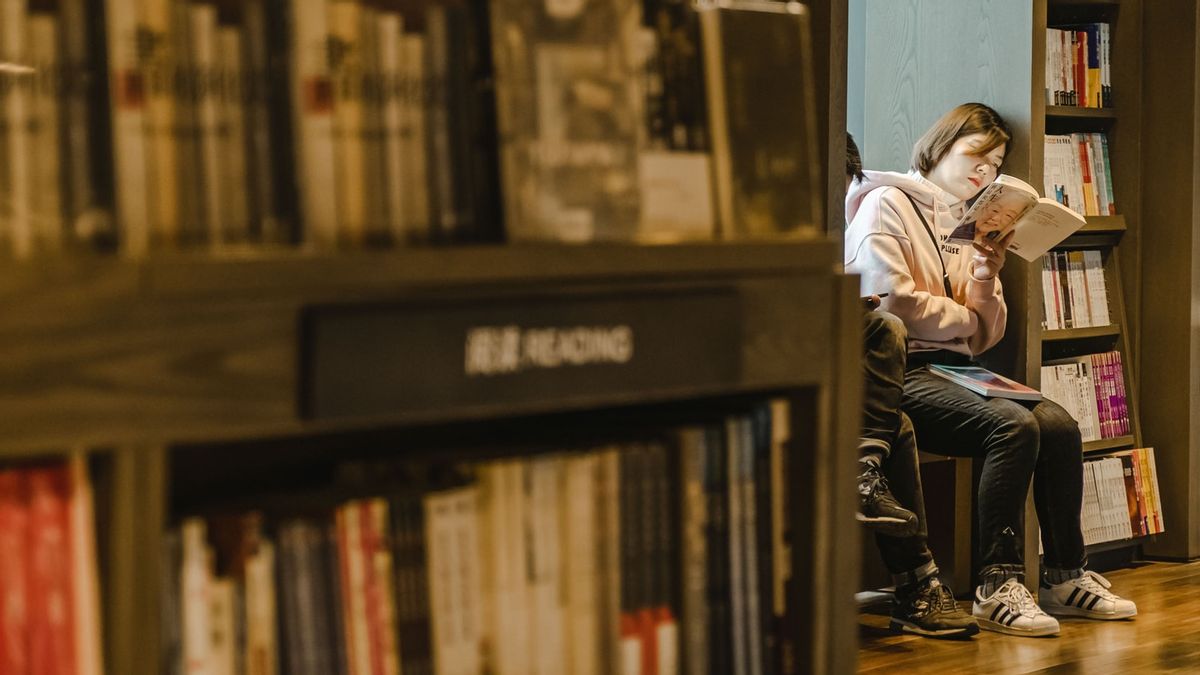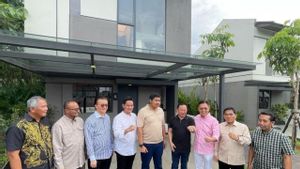JAKARTA - The government continues to improve the function of Indonesian, from a national language to an international language. Diplomacy is now being carried out by the Indonesian Embassy (KBRI) in London, England.
Efforts to make Indonesian an international language are closely related to the development of Indonesian language learning activities for foreign speakers (BIPA), both domestically and abroad. "Learning BIPA activities abroad is a form of Indonesian diplomacy with friendly countries," said the Chancellor of Ad-Interim (KUAI) RI London Adam M. Tugio.
Reporting from the kemlu.go.id page, the government has formulated a strategy to support BIPA learning. Some of these strategies, including efforts to increase the number of BIPA teachers abroad, fostering a structured network for accredited BIPA administrators (JAGA BIPA), and compiling BIPA teaching materials.
Hartyo Harkomoyo, Information and Socio-Cultural Counselor, expressed his hope that language learning strategies can be implemented properly. That's why the Indonesian Embassy in London started this step with research.
SurveyIn September 2020, the Indonesian Embassy in London conducted a mapping survey of prospective Indonesian learners in Great Britain and the Republic of Ireland. There were 159 entries in this survey recorded.
The survey conducted in collaboration with Dorothy Ferari, a diaspora researcher from the University of London (SOAS) revealed that the majority of respondents were adults --36 percent aged between 31-40 years and 30 percent were 21-30 years old - and worked - with a percentage of 74 percent.
As many as 85 percent of respondents have visited Indonesia. More than half, that is, 59 percent, admitted that they have lived in Indonesia or visited Indonesia regularly. Their main reason for coming to Indonesia is to visit family or have a vacation. That is the reason why they are studying BIPA.
However, it is recorded that only 37 percent of respondents are aware of the existence of BIPA classes in the United Kingdom and the Republic of Ireland. The two most well-known BIPA learning providers are the Indonesian Embassy in London and the School of Oriental and African Studies, University of London (SOAS).
80 percent of respondents admitted that they are not currently studying BIPA. This is due to the course schedule that conflicts with the schedule of prospective students (29 percent), expensive course fees (27 percent), and the unavailability of courses in the student's hometown (26 percent).
Indeed, the majority of BIPA courses are held in London, such as at the Indonesian Embassy in London, SOAS, the Royal Botanical Garden, Kew, and the Foreign Commonwealth & Development office (FCDO). In addition, the Indonesian Embassy in London has also held extracurricular classes at two schools in London, namely Whitefield School and St. Matthews CE Primary School.
However, the Indonesian Embassy in London had previously offered free BIPA classes at the University of Nottingham, in the cities of Bristol and York. Based on the survey results, the majority of respondents (66 percent) stated that they are willing to spend at least 1.5 hours each to study BIPA.
The time they think is the most ideal is Monday to Thursday, at night, between 18.00 and 21.00 local time. In addition to collecting data through surveys, data collection is also carried out through interviews.
There were ten of the survey respondents who were interviewed. Respondents were selected based on their background. The youngest respondents who were interviewed were five years old and the oldest respondents were over 60 years old.
High interest in learningFrom the results of the interview, it was found that there was interest in BIPA classes for children and adolescents. Interviewees also emphasized the importance of the course syllabus which emphasizes speaking skills. This is because they have access to other skills, such as reading and listening using materials available on online sites. Meanwhile, they don't have many opportunities to speak.
The results of the interview also showed high interest in BIPA learning. One participant said, “Indonesian is a very interesting language. In principle, Indonesian is an easy language to learn. Therefore, I think if there are more promotions about Indonesian language courses available, people will be interested in learning them. "
Others said, “Indonesia is now being glimpsed by other countries. Now more people know about Indonesia. I think it would be great if the number of Indonesian language courses were increased, not only in London alone ”.
Responding to this, the Indonesian Embassy in London's Information and Socio-Cultural Counselor Hartyo Harkomoyo said, "seeing the high public interest in BIPA learning, the Indonesian Embassy in London in collaboration with SOAS Language Center provides free BIPA courses to selected survey respondents."
In addition, the Indonesian Embassy in London has also started online classes in Indonesian through the YouTube account of the Indonesian Embassy in London. A short video about eight minutes long is uploaded every Saturday at 13.00 local time.
Learning participants can access the video anytime and anywhere. However, if you want to interact with a tutor, learning participants must write a question in the comments column every Saturday between 13.00 and 14.00. The tutor will answer the question at the appointed time.
This online class started on 3 October 2020. Four videos for the beginner class have been uploaded. Furthermore, in November 2020, the Indonesian Embassy in London will upload video material for middle class. For advanced classes, videos will be uploaded at the end of November to December 2020.
To take part in this online class, learning participants can refer to the YouTube page of the Indonesian Embassy in London. All these efforts, the dikatana, are a form of the Indonesian Embassy in London's seriousness in supporting the government's efforts to make Indonesian an international language.
The English, Chinese, Japanese, Arabic, and French versions are automatically generated by the AI. So there may still be inaccuracies in translating, please always see Indonesian as our main language. (system supported by DigitalSiber.id)








